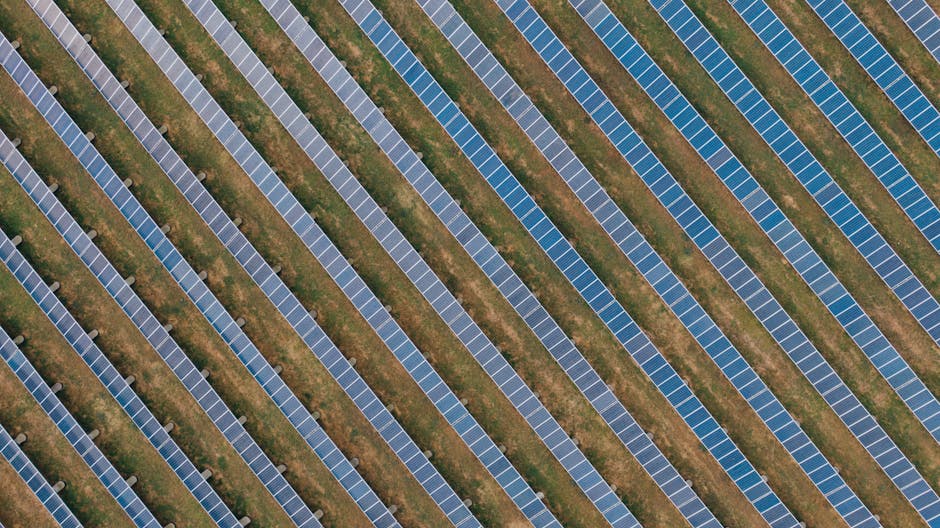Battery For 100 Watt Solar Panel
Solar energy is becoming increasingly popular as a clean and renewable source of power. If you’re considering using a 100-watt solar panel, understanding the right battery to pair with it is crucial for maximizing efficiency and ensuring you have a reliable power source. In this article, we will explore everything you need to know about selecting the best battery for your 100-watt solar panel system, including types of batteries, sizing, and installation tips. Let’s dive in!
Understanding Solar Power Systems
Before we get into the specifics of batteries, it’s essential to understand how a solar power system works. A solar panel converts sunlight into electricity, which can be used immediately or stored for later use. This is where batteries come into play. They store the energy generated by the solar panel, allowing you to use it when the sun isn’t shining.
Components of a Solar Power System
- Solar Panel: Converts sunlight into electricity.
- Charge Controller: Regulates the voltage and current coming from the solar panels to the batteries.
- Battery: Stores the energy generated by the solar panel for later use.
- Inverter: Converts the stored DC power from the battery into AC power for household appliances.
Choosing the Right Battery for Your 100 Watt Solar Panel
When selecting a battery for your 100-watt solar panel, several factors come into play. Let’s break down the key considerations.
Types of Batteries
There are several types of batteries suitable for solar energy systems. Here are the most common:
- Lead-Acid Batteries: These are the most traditional type of battery used in solar systems. They are affordable and reliable but have a shorter lifespan and lower depth of discharge.
- Lithium-Ion Batteries: More expensive but offer a longer lifespan, higher depth of discharge, and faster charging times. They are becoming increasingly popular for solar applications.
- AGM Batteries: A type of lead-acid battery that is sealed and maintenance-free. They are more efficient than traditional lead-acid batteries and can handle deeper discharges.
- Gel Batteries: Another type of sealed lead-acid battery that uses a gel electrolyte. They are less prone to leakage and can be used in various temperatures.
Battery Capacity and Sizing
Battery capacity is measured in amp-hours (Ah). To determine the right capacity for your 100-watt solar panel, consider the following:
- Daily Energy Needs: Calculate how much energy you will use daily. For example, if you plan to run a 50-watt light for 5 hours, you will need 250 watt-hours (50W x 5h).
- Battery Capacity Calculation: Divide your daily watt-hour needs by the battery voltage (usually 12V). For example, 250 watt-hours ÷ 12V = approximately 20.83 Ah.
- Depth of Discharge: Consider the depth of discharge (DoD) for the battery type. For lead-acid batteries, it’s typically recommended to use only 50% of the capacity. For lithium-ion, you can use up to 80-90%.
Based on the above example, if you choose a lead-acid battery, you would need a battery with at least 42 Ah capacity (20.83 Ah ÷ 0.5). For lithium-ion, a 25 Ah battery would suffice (20.83 Ah ÷ 0.8).
Installation Tips for Your Solar Battery
Once you’ve selected the right battery, it’s time to install it. Here are some tips to ensure a successful installation:
Location Matters
- Cool and Dry: Place the battery in a cool, dry location to prevent overheating and damage.
- Ventilation: Ensure there is adequate ventilation, especially for lead-acid batteries that can emit gases.
Wiring Connections
Proper wiring is crucial for safety and efficiency. Follow these guidelines:
- Use Appropriate Gauge Wire: The wire gauge should match the current and distance to minimize voltage drop.
- Connect in Parallel or Series: Depending on your system design, connect batteries in parallel for increased capacity or in series for higher voltage.
Install a Charge Controller
A charge controller is essential for protecting your battery from overcharging and discharging. Make sure to choose a charge controller that matches your solar panel and battery specifications.
Maintaining Your Solar Battery
To ensure longevity and optimal performance, regular maintenance is key. Here are some maintenance tips:
- Check Water Levels: For lead-acid batteries, regularly check and refill water levels if necessary.
- Clean Terminals: Keep battery terminals clean and free from corrosion to ensure good connections.
- Monitor Performance: Keep an eye on the battery’s performance and replace it when it shows signs of degradation.
Common Questions About Solar Batteries
How long will a 100-watt solar panel charge a battery?
The charging time depends on several factors, including sunlight availability, battery capacity, and the efficiency of the solar panel. On average, a 100-watt solar panel can fully charge a 100 Ah battery in about 10-12 hours of direct sunlight.
Can I use my solar battery for other applications?
Yes! Solar batteries can be used for various applications, including powering RVs, boats, and off-grid homes. Just ensure that the battery capacity meets the energy demands of your devices.
What happens if I overcharge my battery?
Overcharging can lead to battery damage, reduced lifespan, and even safety hazards like leaks or explosions. Always use a charge controller to prevent overcharging.
Conclusion
Choosing the right battery for your 100-watt solar panel is essential for creating an efficient and reliable solar power system. By understanding the different types of batteries, calculating the appropriate capacity, and following proper installation and maintenance practices, you can enjoy the benefits of solar energy for years to come




